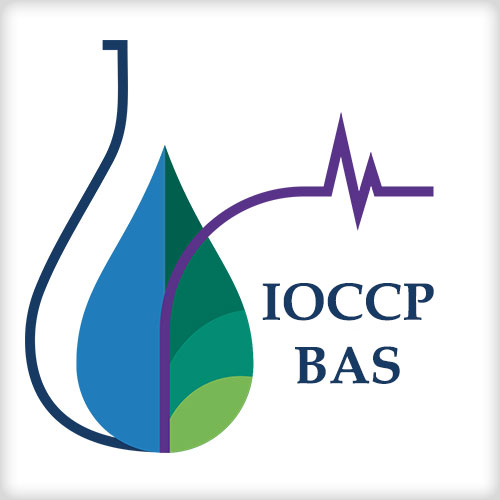IOCCP - BAS

-
Institute of Organic Chemistry with Centre of Phytochemistry - BAS
The Institute of Organic Chemistry with Centre for Phytochemistry (IOCCP-BAS) is a permanent scientific unit within the thematic area "Nanosciences, New Materials and Technologies" of the Bulgarian Academy of Sciences. IOCCP was founded in 1960 and to this day it is the leading scientific center for Bulgaria and the region in the field of organic chemistry, phytochemistry and chemistry of natural compounds. An important point in the development of the Institute was the establishment in 1977 of the Center for Phytochemistry within the framework of a joint project of the Bulgarian Government, the United Nations Development Program (UNDP) and UNESCO for research and applied research and training of specialists.
The Institute of Organic Chemistry with Centre of Phytochemistry at the Bulgarian Academy of Sciences (IOCCP-BAS) is developing and concentrating its R&D and innovation potential in the following thematic areas:
- Development of new catalytic processes for the purification of air and wastewater and for the valorization of biomass
- Synthesis of new meso/microporous nanomaterials for use as adsorbents and catalysts;
- Development and application of analytical approaches based on modern spectral methods (NMR spectroscopy, mass spectroscopy and chromatography, molecular spectroscopy) for structural qualitative and quantitative analysis of synthetic and natural biologically active substances and new functional materials of interest for the pharmaceutical, cosmetic and/or food industry;
- Computer modeling and numeric simulations of complex molecular and supramolecular functional systems and materials.
- Development of methods for the production of new multifunctional organic compounds and materials for application in the life sciences and nanotechnologies;
- Research to find biologically active compounds in medicinal and aromatic plants. Development of methods for qualitative and quantitative analysis of the active components in plant species and extracts thereof;
- Development of methods for assessing the authenticity and quality of fats and oils for food purposes;
- Investigation of the structure, function, stability and interactions of enzymes and proteins with low molecular weight compounds as potential targets for new therapists or regulators of various biochemical processes;
- Development of enzymatic methods for the transformation, detection and valorization of waste from the food, cosmetic, pharmaceutical, chemical and other industries;
IOCCP's scientific activity is in line with the specific objectives defined in the National Strategy for the Development of Scientific Research 2017-2030, the main goal of which is the promotion of applied research and focusing it on priority areas of the Innovation strategy for smart specialization of the Republic of Bulgaria 2014-2020.
The research carried out at IOCCP-BAS is within 5 of the formulated priority areas in the National Strategy for the Development of Research 2017-2030:
- Novel energy sources and energy efficient technologies;
- Mechatronics and clean technology;
- Health and quality of life. Prevention, early diagnosis and therapy. Green, blue and ecotechnology, biotechnology, eco-food;
- Environmental protection. Environmental monitoring. Use of raw materials and bioresources. Purifying and non-waste technologies;
- National identity and development. Socio-economic development and management.
IOCCP's research infrastructure is state-of-the-art and provides research in the priority thematic areas. The Institute trains students, specialists, doctoral students and postdoctoral students.
Within the framework of the E+ national program, the institute performs activities under Component 1 and Component 3. Scientists from IOCCP-BAS conduct research related to the production of energy from waste biomass. New approaches are being developed for the photo-reductive activation of CO2 and its subsequent direct incorporation into valuable for the industry complex organic compounds. New effective adsorbents and catalysts are being developed to capture and utilize CO2. Scientists from IOCCP-BAS are also involved in the preparation of an analytical report "A Critical Analysis of Modern and Prospective Methods for CO2 Capture, Storage, Conversion and Utilization".
Scientific infrastructure for the implementation of the tasks under the National Program E+:
- System for dynamic CO2 adsorption with on-line gas chromatographic analysis (GC with detectors: FID and TCD);
- Pressure reactors;
- NMR spectrometers: Bruker Avance II + 600 with liquid and solid phase probeheads and Bruker DRX 250;
- NEXIS GC-2030 ATF gas chromatographs with FID and TCD capable of automatically entering and injecting samples;
- Shimadzu and Jasco V-670 UV-Vis spectrometers capable of solid phase measurements;
- Apparatus for thermogravimetric analysis up to 600oC in different gas media (Setaram).
-
Contacts
Phone: +359 2 9606 112
Email: office@orgchm.bas.bg
URL: http://www.orgchm.bas.bg/Correspondence address
Acad. G. Bonchev Street, block 9,
Sofia 1113, Bulgaria

 Български
Български English
English